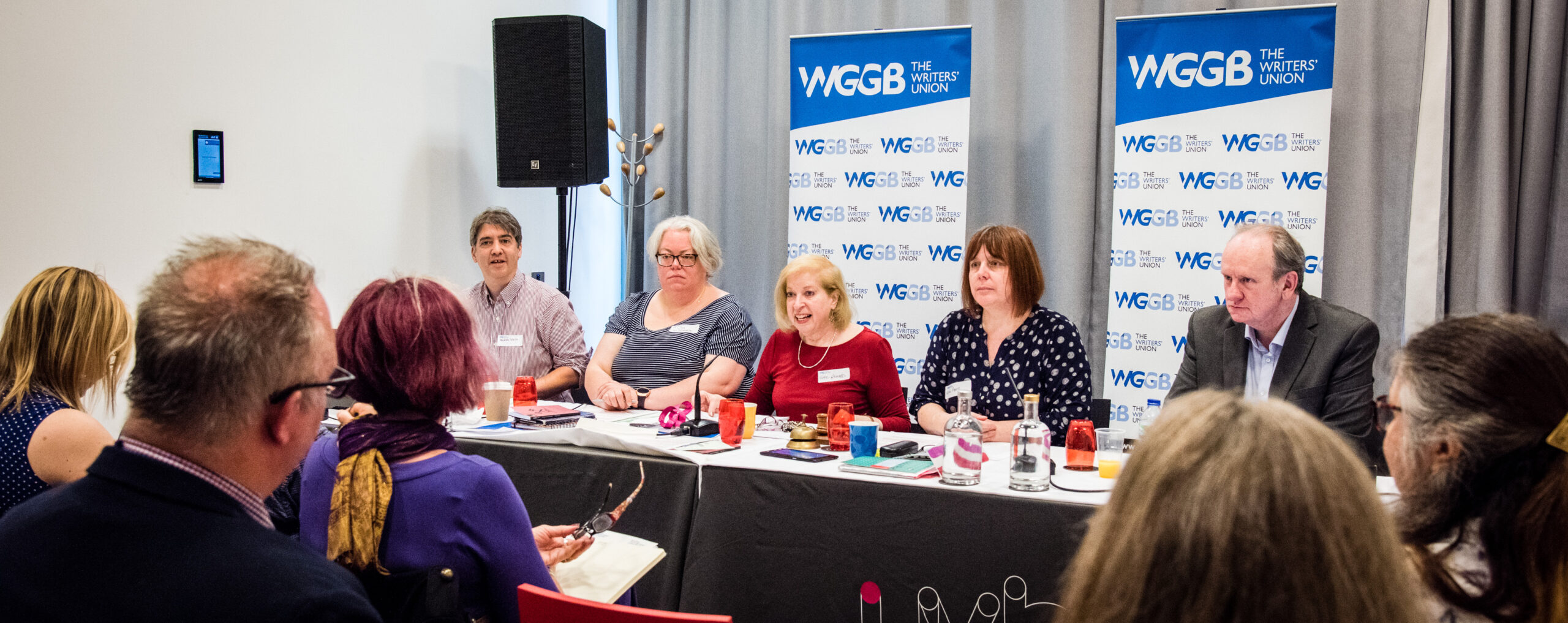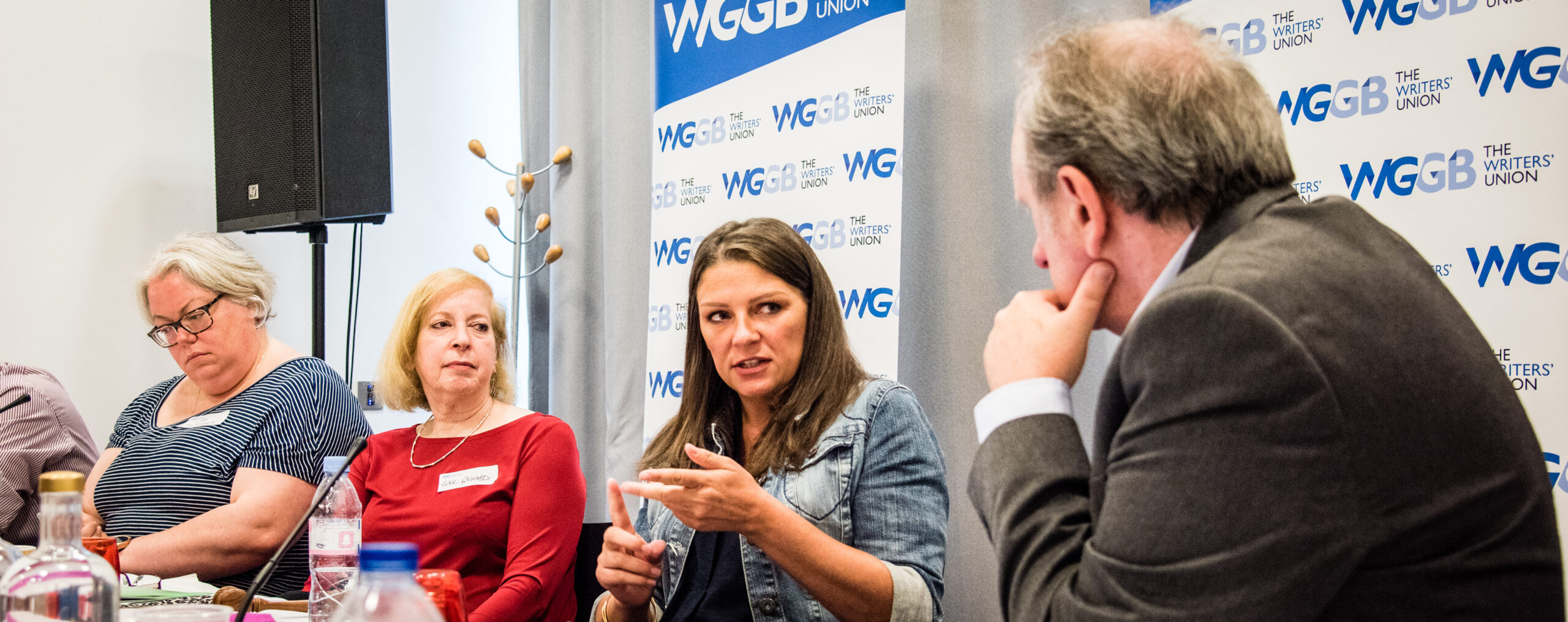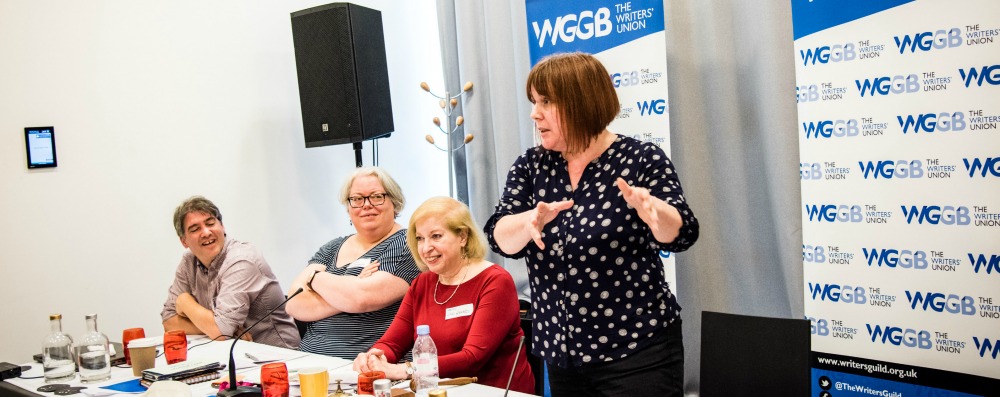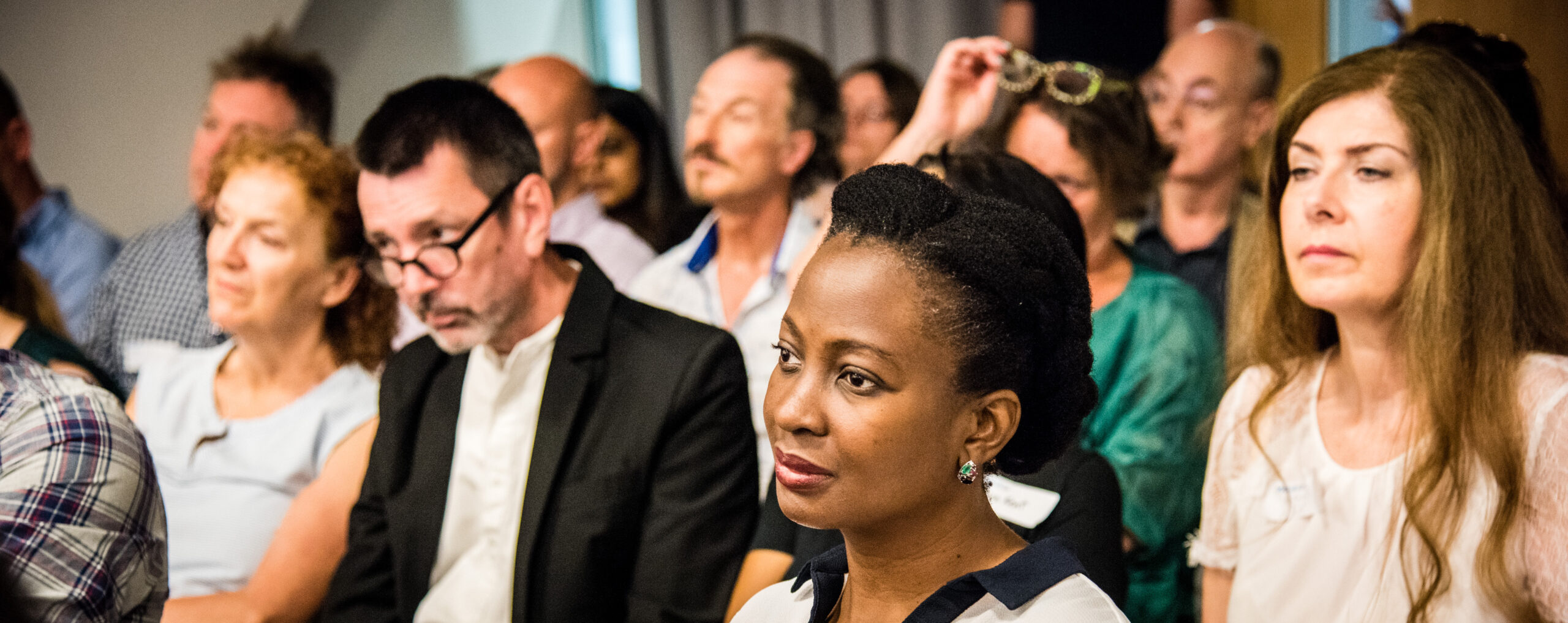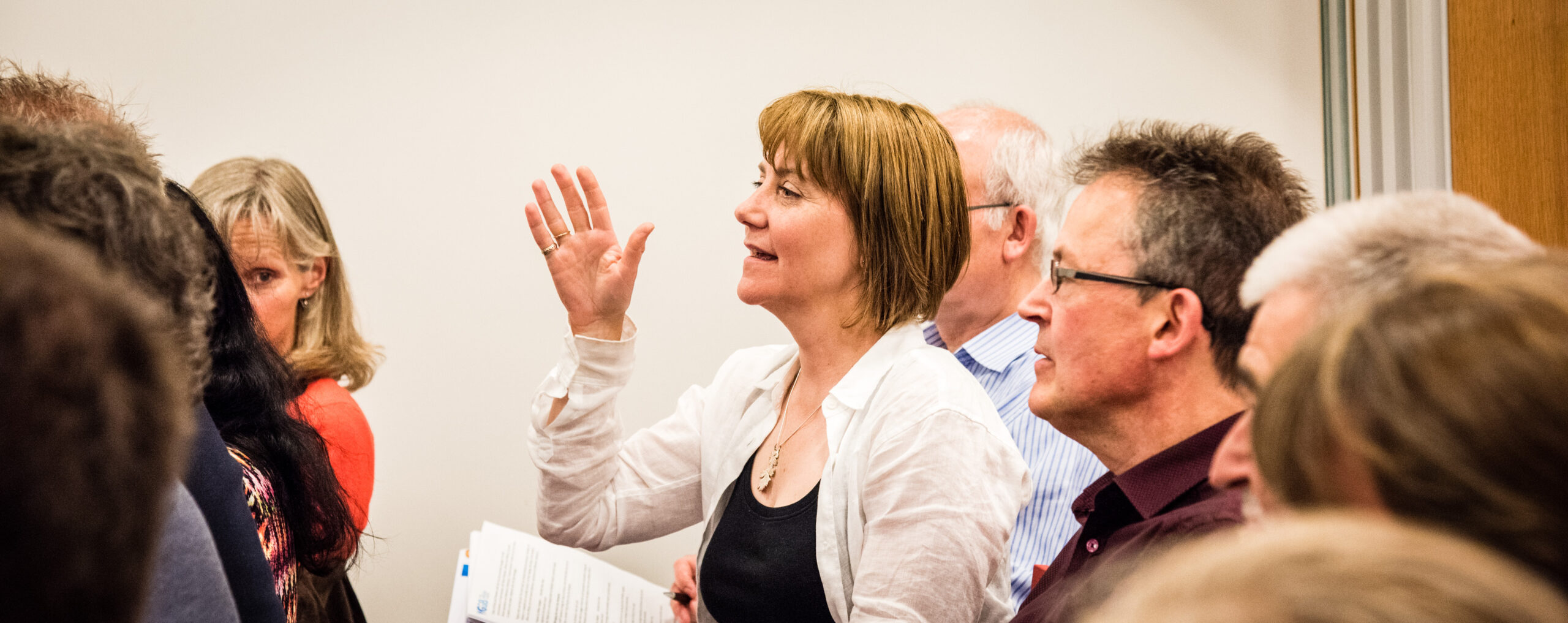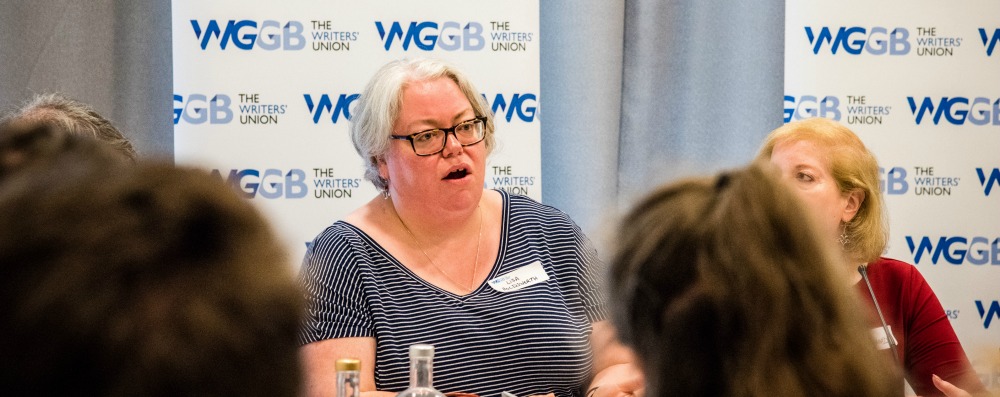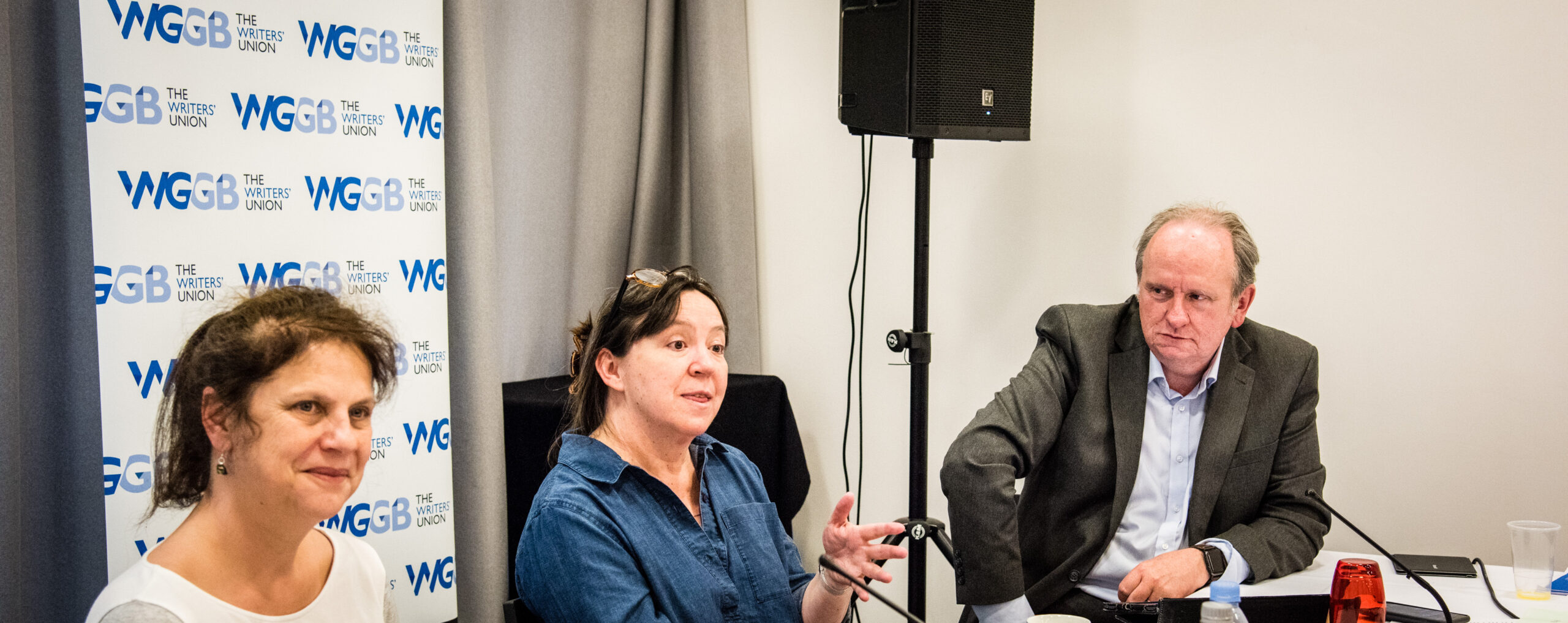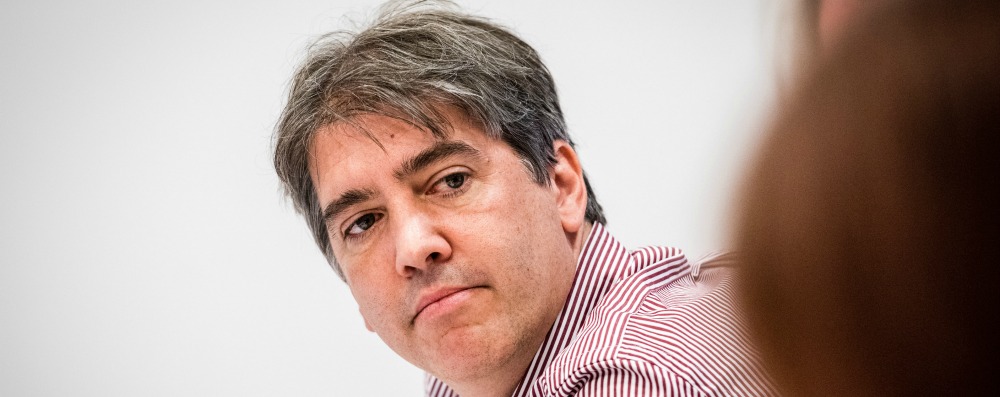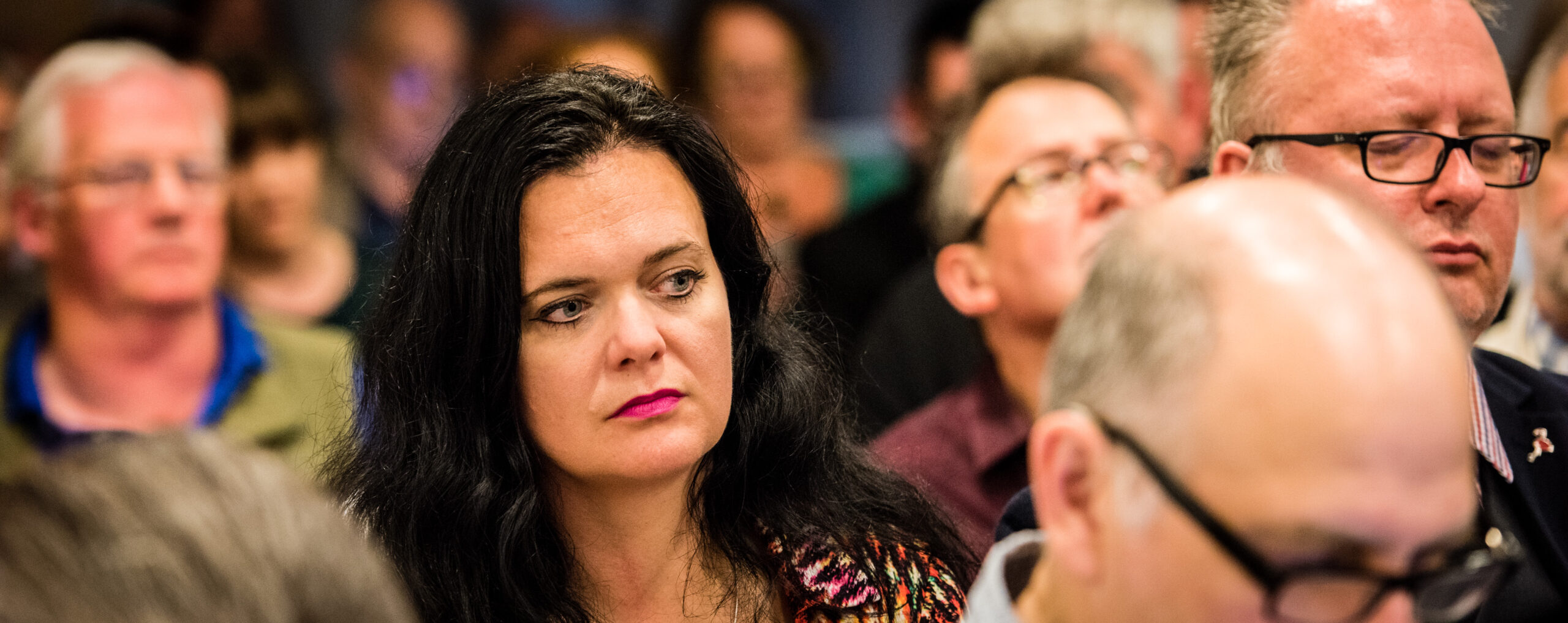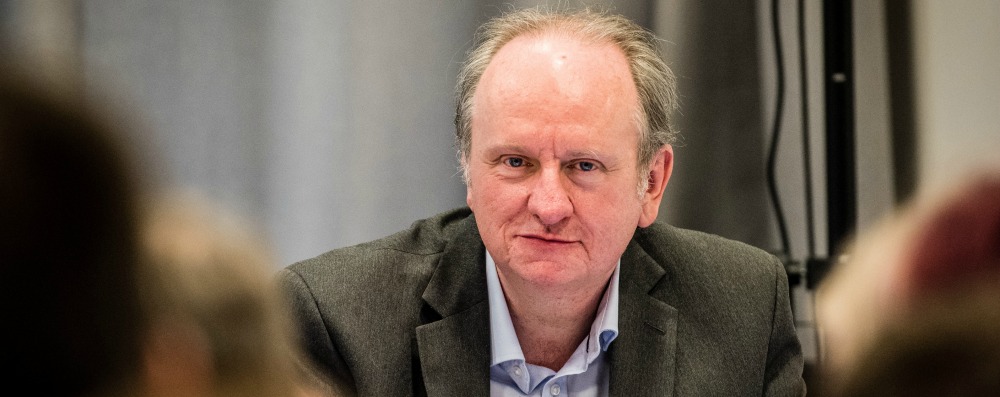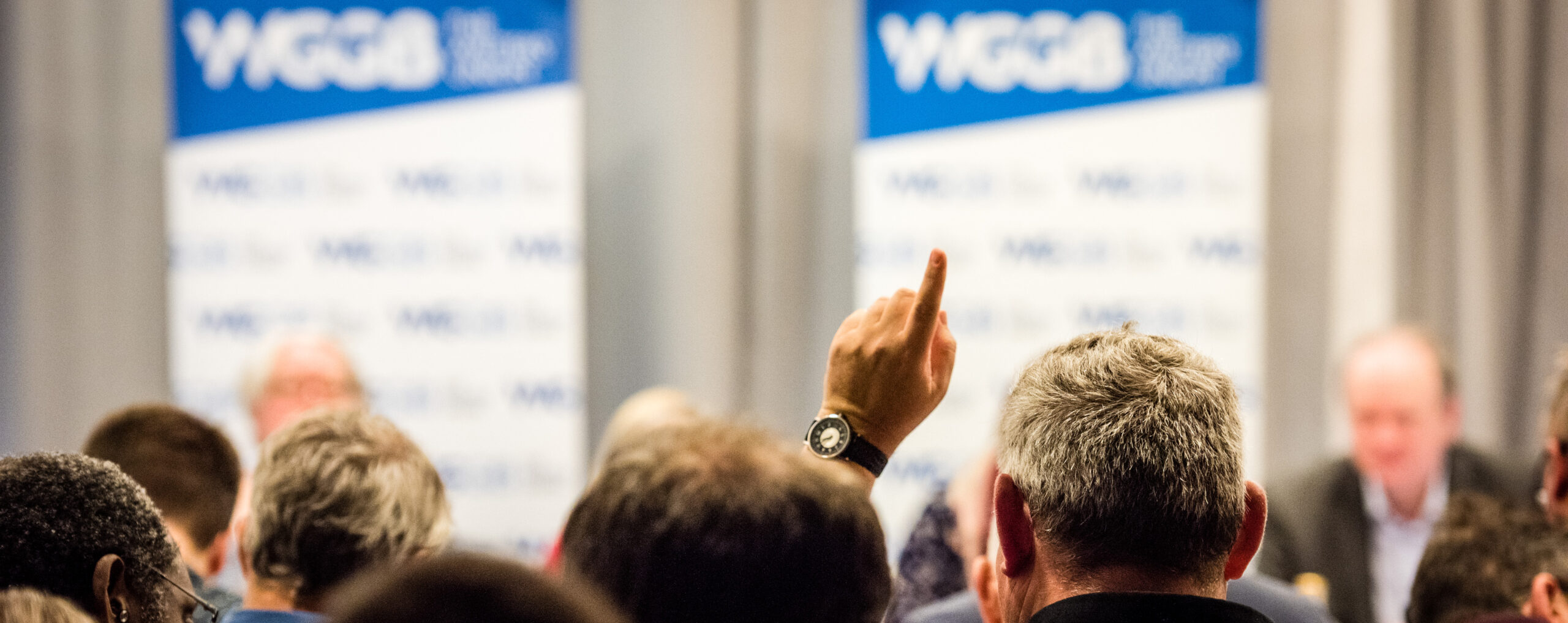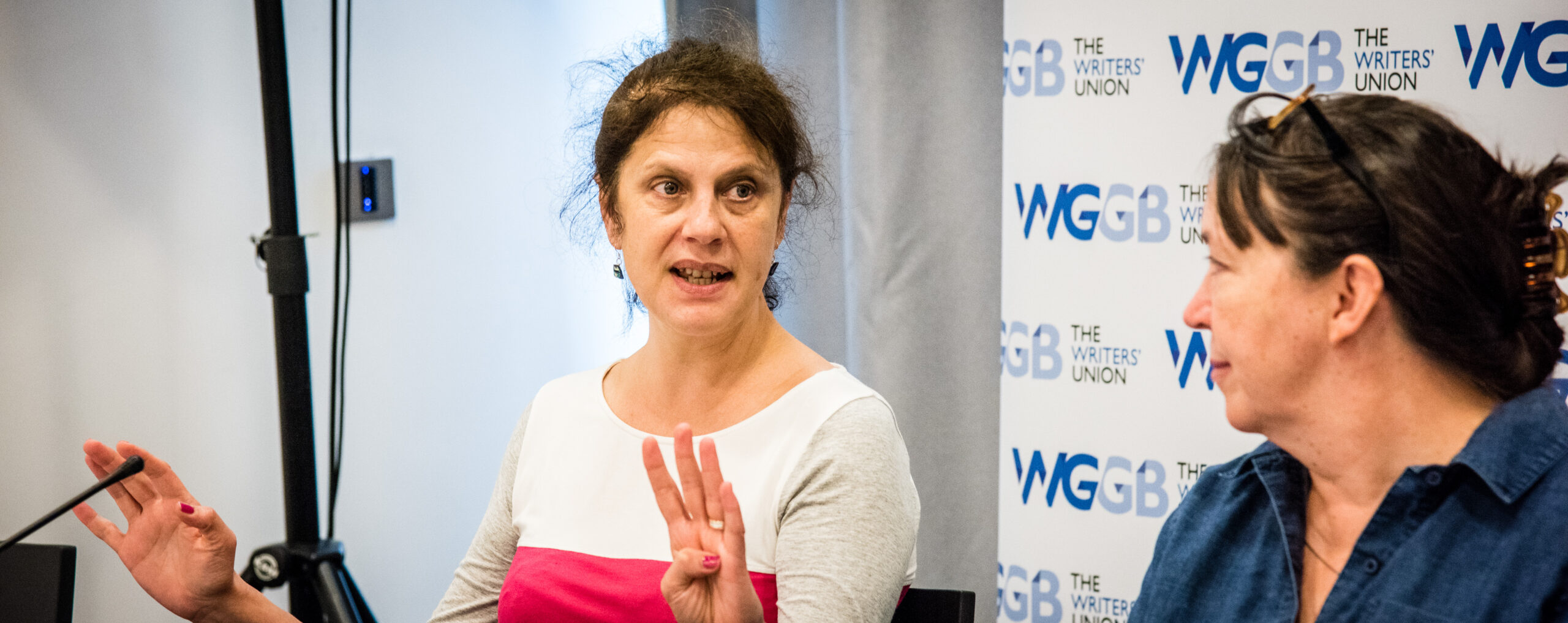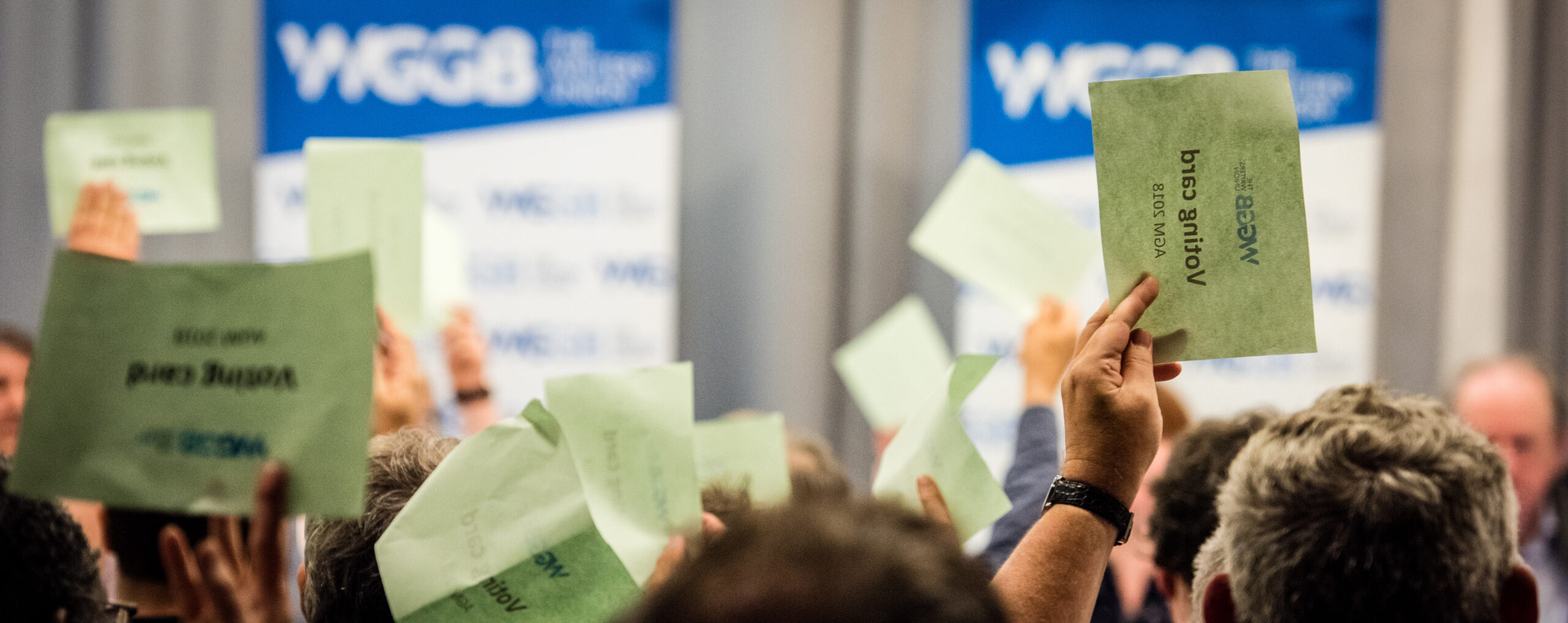The Writers’ Guild decamped to the West Midlands for its AGM on Wednesday 20 June 2018, the first time in the union’s history that the meeting has been held outside the capital.
And regional representation was firmly on the agenda as Deborah Dunnett, Channel 4 Nations & Regions Executive, spoke about the broadcaster’s future as it undergoes a shift in the way it operates (Channel 4 will retain a London HQ but will have two regional hubs, and a decision will be reached on where those hubs will be in the autumn).
She said that the nations and regions and diversity had always been “at the heart” of what Channel 4 does but the broadcaster was aiming to increase its existing mandatory quota (35% of main channel content made outside London) to 50% by 2023.
Her team’s role, she said, was partly to “help creatively”. This included schemes to develop talent in the nations and regions, and also ways to partner and to find new voices. “The more partnerships we have, the more successful it’s going to be,” she said.
She added that the changing broadcast landscape, for example the rise of Netflix and Amazon, offered an opportunity to the broadcaster, which would continue to aim to be “the place where people find themselves on screen”.
She singled out the Channel 4 sitcom Derry Girls, which she hailed as a brilliant example of “when good writers really reflect themes that fit with everyone”, emphasising that you can be regional but tell stories in a way that engages others.
BBC Home Front editor Jessica Dromgoole spoke about the success of the Birmingham-produced programme, and how it represented an enormous act of faith in audio drama to “commemorate something very important nationally”. The four-year series about World War One has all been written by writers who have not been to university or with no formal training. She added that the series had encouraged the BBC to be “bolder” about shorter formats, including podcast commissions. “There was a time when Radio 4 was the only place where radio drama could be heard,” she said, but now podcasting offered a “rosy” future with diffuse opportunities and an openness to be bold and mix genres.
She added that she wished “that people would write radio drama”, so they could see how straightforward it was and how it was “the best way of getting your writing into someone’s head”.
Roxana Silbert, Artistic Director of the Birmingham Rep, spoke about the complexities of theatre programming, how ideas often came to the theatre externally, as the result of collaboration, and how it was important to get a balance across a season. She also said that programming for a smaller theatre tended to be more director-led and the bigger the theatre, the “less it is about your taste”. She also spoke about the difficulties faced by theatres in aligning Arts Council funding cycles with theatre programming, and how it would help if this could be improved.
Equality, diversity and what the union was doing to combat bullying and harassment were a recurring theme throughout the day. Ellie Peers, WGGB General Secretary, spoke about the Harvey Weinstein scandal, which had broken since the last AGM, and how WGGB had built upon on its longstanding work in the Creating Without Conflict campaign. The union has worked across industry to support the formulation of 8 Principles tackling the problem of bullying and harassment in film and 10 Principles tackling the problem in theatre. She added that it was “Disheartening to hear that a Culture of Fear still exists, but we will continue to support members and work across the industry with the long-term aim of creating an environment where writers feel able to report incidents without fear of retribution.”
On the equality and diversity front, she was pleased to announce that the recently launched Equality Writes campaign had already resulted in the formation of a new WGGB Equality Working Party, which is open to all under-represented groups of members, and that WGGB will shortly be meeting with public funders to ask them to pledge a 50/50 split between male and female-written films by 2020. The union continued to boycott the Project Diamond diversity monitoring initiative until broadcasters agreed to share programme-level data. “We want transparency, and a grown-up conversation about what is working well and what isn’t.”
Gail Renard, WGGB Chair, commented on how the Equality Writes campaign was proving to be an empowering force:
“To me the best thing about our Equality Writes campaign is it’s already made a lot of writers braver – which is as it should be. We’re teaching people how to treat us.”
A number of motions were voted on at the AGM. See the full list of motions that were carried or not carried.
Results of recent WGGB elections were announced. The list of WGGB Executive Council representatives can be seen in the Contacts section of our website.
The following vacancies still exist (members who are interested should email admin@writersguild.org.uk and put the relevant vacancy in the subject field).
- Chair of the Videogames Committee
- Chair of the East Midlands region
- Chair of the North West (Merseyside) region
- Chair of the North West (Manchester and Lancashire) region
- Chair of the Scotland region
- WGGB Treasurer
Gail Renard paid tribute to the sterling work done by outgoing Treasurer Andrew Walsh over six years in the post, and three years before that as Deputy Chair.
“The fact that the Guild’s finances are in such superb shape is largely thanks to Andy and his years of hard work and diligence,” she said. “We all owe him a great debt.”
And Ellie Peers reinforced the important work that many members were doing within their union, and thanked the “small army of writers” who were working behind the scenes in myriad of ways. “One of the things that distinguishes our negotiation teams is that we bring you into the room, as working writers are part of all our negotiating teams.”
She said the union’s forthcoming 60th anniversary next year would enable WGGB to celebrate these valuable contributions throughout the years, and that into the future the union would continue to stay at the “top table” in negotiations, to future-proof agreements and meet “head on” the challenges and opportunities faced by writers, including (among others) SVOD (Streaming Video on Demand) and, of course, Brexit. She concluded by saying that “none of this would be possible without you, the members”.
Outgoing Treasurer Andrew Walsh reinforced this message and pointed out, “how important you are. You are the Guild.”
In her closing remarks, WGGB President Olivia Hetreed also highlighted the tireless work undertaken by volunteer members, officers and staff in driving important initiatives in the past year. She cited the Equality Rights campaign and the Writers’ Guild Awards, which celebrate the “brilliance” of writers and give the union “more weight” when it goes into other meetings or negotiations.
She rounded up the AGM by quoting poet WH Auden, a “Birmingham boy”:
Some writers confuse authenticity, which they ought always to aim at, with originality, which they should never bother about.
She urged those present: “In a world where truth often seems to be a quaint, old-fashioned notion, I would ask you to go forth and be authentic.”
